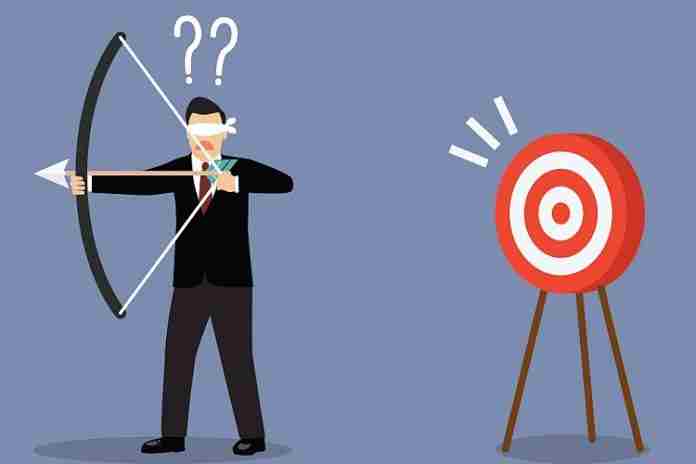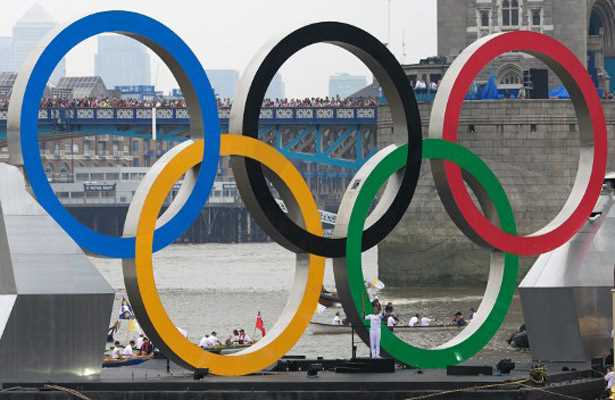 Much has been made over the past several days about protests from a group of athletes calling themselves the “Committee to Restore Integrity to the United States Olympic Committee and the USOC’s own reply.
Much has been made over the past several days about protests from a group of athletes calling themselves the “Committee to Restore Integrity to the United States Olympic Committee and the USOC’s own reply.
What’s all the fuss about? In short:
● On 2 January, the USOC announced the appointment of three new Board members: Rich Bender, the Executive Director of USA Wrestling, Brad Snyder, a retired U.S. Navy lieutenant and a para-swimmer; and Beth Brooke-Marciniak, global vice chair of public policy for the EY consulting form. Four other directors were re-elected for a second term.
● Two days later, the appointments were met with derision from a Washington, D.C.-based, ad hoc group calling itself “The Committee to Restore Integrity to the USOC.” It issued a statement which maintained that “this week’s appointment of Rich Bender and re-appointment of Steve Mesler to four-year terms on to the USOC Board represents a willful blindness to the cultural and structural changes necessary.”
The statement continued, “Together, these appointments demonstrate that the board is functioning without regard to the Ropes & Gray Report or to Congressional House Subcommittee Report. Worse, the USOC is still functioning without regard to the interests of its athletes. The athletes, elected by their peers, were not consulted about any of the new appointments as they were being vetted.”
The statement was supported by 75 signatories, many of whom were U.S. Olympic athletes – including multiple gold medal winners – but few of whom are still well known to the public. Tennis star Martina Navratilova, basketball’s Nancy Lieberman and diver Greg Louganis are among the better known names on the list.
● Two days later (now 6 January), USOC Chief Executive Sarah Hirshland responded with a letter of her own to the USOC’s Athletes’ Advisory Council – the body of athletes, elected by athletes, to voice their concerns within the USOC – noting that the protests and reports of those protests, “suggest these appointments were made ‘against the objections of the AAC;’ or that ‘the AAC was not asked for its feedback in the board’s process;’ or that ‘the athletes, elected by their peers, were not consulted about any of the new appointments.’ These claims are just not true.”
She went on to add, with emphasis:
“We need your engagement and involvement. We need your candor and transparent views. We need your leadership, organized and aligned behind a unified voice so that we know athletes’ input is well represented.
“We expect you to hold us accountable. We also expect you to hold your peers accountable – accountable to telling the truth, living up to the commitments we make to one another and to regularly engaging in a respectful and open-minded way to solve concerns and discuss opportunities.”
So what to make of all this?
From the USOC’s perspective, all the noise doesn’t make the job of reform any easier, but it also does not deter it in any meaningful way. In fact, Hirshland noted in her 6 January letter her commitment at an 8 December 2018 meeting with the AAC leadership that the USOC would (1) adopt evaluation criteria for Board members up for re-election and (2) create a process to ensure AAC input into the Board agenda to reflect the “AAC’s collective priorities.”
This paints the Team Integrity group as either uninformed or the USOC’s Athletes’ Advisory Council as insufficiently communicative with its own athlete base. The latter is undoubtedly true and it’s probably impossible for this body to effectively reflect the interests of all Olympic-sport and Pan American-sport athletes on all issues at the same time. In fact, there are just 71 members of the AAC (and almost the same number as alternates) for both Olympic and Paralympic sport in the U.S.
But the Team Integrity statement and the parallel (but apparently unconnected, but clearly not coordinated) “Olympians Rising” fund-raising Web site are missing their opportunity.
The key is the U.S. Congress. Arguing against the USOC’s Board appointments, demanding everyone resign and so on accomplishes very little except lots of Web traffic, Facebook posts, tweets, re-tweets and likes … none of which changes the status quo.
Because of the Nassar sex-abuse scandal, the opportunity is available to visit actual change to the way the U.S. Olympic Committee is governed, either by changes to the Ted Stevens Olympic and Amateur Sports Act, or by the process by which the Act is implemented and operated.
The Team Integrity statement was largely a throwback to the “Reign of Terror” during French Revolution, asking for the guillotining of the USOC Board, and did not advance a single specific change in the Act other than to call for the Congress to “re-write the Sports Act.”
That’s not helpful. The AAC, to its credit, delivered two specific recommendations to the Congress last July through its chair, Han Xiao (a table tennis player). He was specific and clear:
“First, I recommend establishing an autonomous Inspector General’s Office, reporting to Congress and the AAC. The role of this office would be to hear athlete concerns confidentially, without fear of retaliation, about the governance and operation of the USOC and NGBs, to independently investigate issues in the Olympic and Paralympic Movement, and to determine necessary corrective actions.
“Establishing this office and providing additional oversight would contribute greatly to a necessary cultural shift within our movement toward a focus on serving our country’s athletes.
“I also recommend the establishment of an ‘Athlete Advocate.’ In 1998, Congress amended the Sports Act to require a new position, the Athlete Ombudsman. The position was meant to solve the recurring problem of athlete conflicts with their NGB or the USOC. …
“The Athlete Advocate’s role would be to provide confidential legal advice to athletes and actively advocate for their rights and interests on a full-time basis. In addition to directly representing athletes when necessary, with a client-attorney relationship, the Athlete Advocate would work with other athlete representatives in the Movement to raise repetitive issues with the USOC, NGBs and other organizations.”
This is what real reform looks like, and it gives the Congress – which has 1,000 other issues to consider at the same time – something to chew on as it figures out how to handle the USOC, the National Governing Bodies and the current text of the Act.
Compared to Xiao’s presentation, the Team Integrity and Olympians Rising efforts are just jactitation.
At the same time, what came out of the Congressional hearings can also be of use to the USOC.
First, it could act NOW on Xiao’s comments, either beginning the process of setting up the structures he suggested, or recruiting a third party – in essence a sponsor – to do so. Moreover, Sen. Richard Blumenthal (D-Connecticut) asked during the Senate Subcommittee hearing last October asked the heads of four U.S. National Governing Bodies if they would commit to having a majority of athletes – who is an “athlete” was not defined – on their Boards of Directors. The chief executive of the weightlifting federation said yes, but those from bobsled and skeleton, figure skating and swimming said no, but that more than 20% was certainly possible.
The USOC can act on that now.
What Blumenthal does not understand, and groups like Team Integrity do not talk about, is that Olympic sport in the United States – for the most part – is essentially a partnership between children and young adults (athletes), their parents and community volunteers (league organizers), coaches and officials. As the level of competition rises, to high school, college and professional sport – with the Olympics somewhere along the way – there are more and more stakeholders, including online and television broadcasters, commercial sponsors and charitable organizations which are often involved in athletics; think of the fund-raising that goes in major U.S. marathons.
All of those groups need to have a say in what the rules and regulations are in organizations like the USOC, USA Swimming and so on. Athletes are in the center ring, but they are only part of what makes the show go on.
The USOC can easily increase athlete representation from the 20% mandated in the Act to 33-40% and create new infrastructures for better athlete communications in coordination with the National Governing Bodies. This has to happen not only at annual national conventions, but at major regional and national competitions as well, when the highest number of athletes (and coaches and parents and officials) will be present.
Team Integrity missed its opportunity to make a case for specific reform that could be turned into legislation by the Congress and instead yelled, “Off with their heads!” The year-long Reign of Terror during the French Revolution led, within five years, to the dictatorship of Napoleon.
Surely, those who want to see the USOC function properly, can do better than that.


























